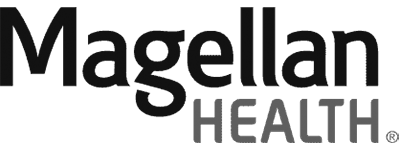What is Medication Assisted Therapy (MAT)?
Medication Assisted Therapy, or MAT, combines substance abuse treatment with medication that assists your abstinence from opioids or alcohol. The Drug Addiction Treatment Act (DATA) of 2000 essentially created MAT by allowing narcotic medications use to treat opioid dependence. This came about because doctors have recognized the changes to brain chemistry that opioids cause, and the attendant dangers of drastically cutting off that substance from a patient’s brain. MAT has proven to be the most successful program for opioid abuse.
Who is MAT intended for?
Medication Assisted Therapy is for substance abuse patients who are at high risk when they quit using that substance, primarily:
- Opioid addiction. MAT is the recommended program for the condition known as Opioid Use Disorder, or OUD. From heroin to prescription drugs, opioids are highly addictive, and sudden abstinence puts a patient at high risk of serious withdrawal. Medications such as buprenorphine, suboxone, and naltrexone allow your brain to receive the higher levels of dopamine that it expects from opioid use, but to gradually reduce the amount over time to minimize relapse and withdrawal symptoms. We believe these medications are a safer alternative to prescribe than methadone, which our physicians do not prescribe.
- When someone addicted to alcohol suddenly stops drinking, they can experience severe physical and mental issues. The medications we use for alcohol abuse treatment include disulfiram, acamprosate and naltrexone, which curb the craving for alcohol and have proved effective in conjunction with therapy.
Is MAT Effective?
In a word, yes: MAT works. According to the Substance Abuse and Mental Health Services Administration, Medication Assisted Therapy has proven effective in:
- Improving patient survival
- Increasing retention in treatment
- Decreasing illicit opiate use and other criminal activity among people with substance use disorders
- Increasing patient’s ability to gain and maintain employment
- Improving birth outcomes among women who have substance use disorders and are pregnant
The New England Journal of Medicine has also found MAT to effectively address heroin addiction, noting that it:
- Contributed to a 50% decrease in the number of fatal overdoses
- Increases the number of patients who remain in treatment
- Helps improve a patient’s social functioning
- Reduces the risk of drug-related infectious disease contraction and criminal behaviors
Is it Wrong to Use Medications to Treat Addiction?
The biggest obstacle to widespread MAT adoption is the misconception that using treatment medications simply swaps one addictive drug for another. A patient undergoing Medication Assisted Therapy is sober; by using a MAT-approved medication, we reduce cravings and prevent relapses, which helps patients stay sober. The medications used in MAT are approved by the Food and Drug Administration (FDA).
There is an abundance of scientific evidence that patients who suffer from opioid or alcohol abuse have undergone significant changes to their brain chemistry. Their brain requires a certain amount of stimulation that previously came from a substance. To prevent your brain from experiencing the kind of dramatic withdrawal that extends into mental and physical symptoms, we use carefully supervised, approved medications that enable sobriety by gradually helping the brain recover to its normal state.
It’s also important to note that substance use disorders are considered a chronic disease. We remind you, however, that diabetes treatment, a chronic disease, also involves lifestyle changes. Medication Assisted Therapy is no different; the therapy sessions work hand in hand with medications in order to help patients achieve long-term, lasting recovery.
MAT Medications for Opioid Abuse
Oakvine Recovery Center uses the following approved MAT medication for opioid abuse:
- Buprenorphine. This medication has similar effects as methadone, though at a slightly weaker level. It also has a quality known as a “ceiling effect,” which means the patient does not feel high or other side effects, which helps prevent abuse.
- Naltrexone. Conversely, this medication reduces opioid cravings by blocking their effects. The patient does not feel any kind of high or euphoria, and thus the patient’s brain seeks it less.
MAT Medications for Alcohol Abuse
We address alcohol abuse recovery with these medications:
- Naltrexone. By removing the pleasurable feeling a patient derives from drinking, Naltrexone reduces the brain’s desire for it, thus decreasing cravings and withdrawals.
- Acamprosate. We prescribe this medication after a patient has successfully stopped drinking. We wait until withdrawal symptoms have stopped and can then use Acamprosate to prevent relapse.
- Disulfiram. Disulfiram prevents alcohol cravings by causing reactions such as headache, nausea, and vomiting if a patient drinks.
Is MAT Right for You?
Contact us today to discuss if Medication Assisted Treatment is the right approach for you. It will involve both carefully administered medications and a true focus from you and your support group on developing better physical health, mental health, and coping skills. We believe strongly in the ability of MAT to create positive lives for our patients!
Contact us here or call (877) 255-6890 to get started!



